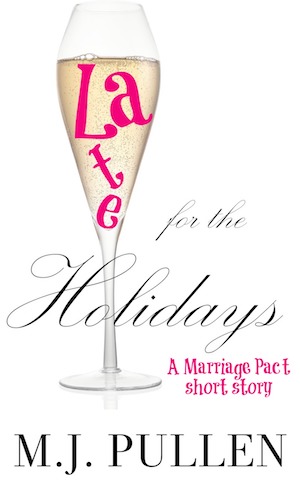As I head into the home stretch on my third novel, and the rigor of revisions, it’s time to give some

attention to a group of people who normally only get acknowledged, well… in the acknowledgements. Each time I have written a book, I’ve had a group of friends and family who have volunteered their time and attention to read the first or second draft, and in a selfless act of friendship, shared both their positive and negative opinions to help make those books better. So, while I won’t call them out by name here, you can find them listed (in growing numbers) in the back pages of every book I write. This go-round there are about twenty of them, and I count myself lucky to have each one.
So without further ado, here’s why I love them:
Beta readers are the best cheerleaders and greatest reality check.
Writing a novel is an enormous undertaking. (My shortest draft thus far was about 72,000 words). In the time it takes to write a novel, particularly if you allow your characters to make organic decisions on the fly as I do, it’s easy to get lost and/or discouraged. Beta readers are a specific audience of people who know you, like your work, and are cheering you on to finish. They’re the folks you know will read your novel, even if it’s crap and you don’t sell a single copy. They’ll also gently tell you when timelines don’t match up, scenes are confusing, or when something that seems very clear in your head doesn’t come across that way on the page.
Betas give me a unique sense of what works and what doesn’t.
While several of my beta readers have English degrees or are writers themselves, most of them are not professional reviewers or critics. They’re readers, and each of them brings a different perspective to a book. I like to get opinions from a variety of people who enjoy different genres. Many of my betas, for example, are not primarily romance readers (though some are), and several are men. I don’t automatically change things based on any one person’s feedback, but when I hear a trend of responses about a particular portion, I know that’s something I need to look at more closely.
They are not my husband.
Hubs reads everything I write, often more than once. With BAGGAGE CHECK, he has read for the first time along with the beta readers, which was fun. He is the most amazing sounding board for ideas, questions, criticism (from others) and more. He makes my writing life possible, honors my time, and lifts my spirits when I am discouraged. He’s definitely involved in this venture. But never as a critic. In my opinion, the person who sleeps next to you and shares dish duty and parenting, should not be a person who picks apart your life’s work, even constructively. Maybe there are couples who do this successfully, but to me it seems like a recipe for marital disaster. Or at least some unnecessary tension.
This is the stuff your proofreader can’t do.
I have a wonderful proofreader. I could do an entire blog post on the importance of having an objective (paid) expert go over your manuscript with a fine-toothed comb to look for grammar, punctuation, usage and consistency errors. Beta readers are not proofreaders. Sure, they sometimes catch typos and find distracting phrases (in the first draft of The Marriage Pact I used the phrase “clucking her tongue” in several places for some reason). But the main job of a beta is to give you an opinion: a subjective response to their reading experience, which you can synthesize in the way that helps your work best.
Better than a punch in the face.
My work has flaws. Your work has flaws. Even on revision #12, and especially if it’s a first novel. As writers, we become blind to the imperfections in our books just like parents do with their children. We get a little caught up in the miracle of producing them, and it’s only natural that we can’t exactly be objective. Which, in the privacy of your desk drawer, is fine. But once you put on the shiny shorts and take your work into the fighting ring by clicking ‘publish’, there are hundreds of readers – thousands, if you’re lucky – out there just waiting to punch you in the nose, and tell you everything that is wrong with your sweet little baby. [For instance, the number of mixed metaphors in this paragraph].

Unlike your betas, those readers don’t know you, they don’t love you, they have no reason to spare your feelings. They don’t care if you’re new at this, or have a newborn, or that your mom reads all the reviews of your books and cries when they are unjust. They don’t see your publishing a book as an act of bravery and self-expression, but as a product to be judged.
Some of them will love your book despite the flaws. Some will judge you fairly and review both the good and bad points, and the best of these can also separate their personal preferences from flawed storytelling. Some will simply put the book down or delete it from their e-reader, and you’ll never know why. Others will just rant, leaving you spitting out teeth on the mat and wondering what the hell just happened. Maybe they had a bad day, or an unhappy childhood, or maybe whatever was wrong with your book irked them so much that they couldn’t move on with their day until they let the Internet know.
When someone takes the time to buy, download and read your book, and they feel disappointed in the end result; that person may feel (right or wrong) entitled to trash you, your book, and your whole view of the world in a review. As authors, we have to develop thick skins about this and learn from it where we can. But even when we’ve learned our lessons and maybe even revised again, those one-star reviews are with us FOREVER. Good beta readers won’t protect your book entirely from bad reviews. In fact some negative reviews are simply a matter of taste, rather than reflective of mistakes or errors, which is fine.
The goal is not to avoid any negative feedback, but to ensure that your book is the best possible version of itself before it hits the public eye. That’s where beta readers can help. If something confuses or turns off my beta readers, I know others are likely to feel the same way. If more than two people whose opinions I trust dislike something about my book, that’s worth noticing. My job as a writer is to defend my choice — to myself, not them — basically to justify why a word, paragraph, scene or plot point needs to be there. If I can’t, it’s gone.
Hug a beta reader today!
They have a tough job: reading work that’s not yet in its best form, and being able to be gently honest with a friend about their baby. Whether you’re an author or a reader, they make our experience with books better. Thank you!
Sign up for M.J’s Mailing list & read Late for the Holidays FREE! Sign Me Up!



Thank you for the giveaway here –
http://purejonel.blogspot.in/2013/10/RegretsOnly.html
^_^